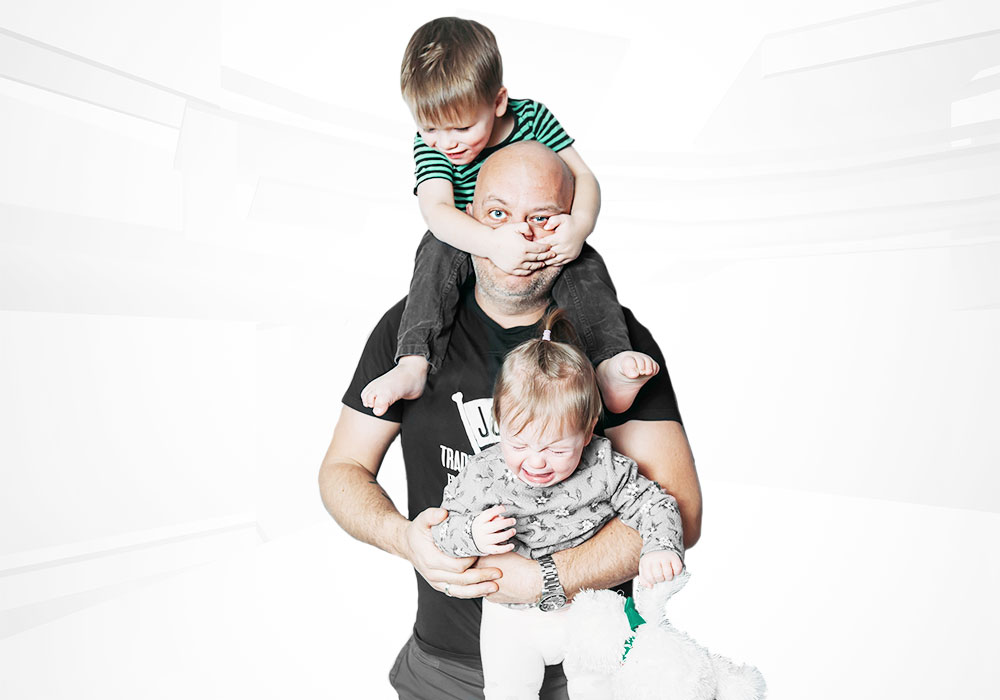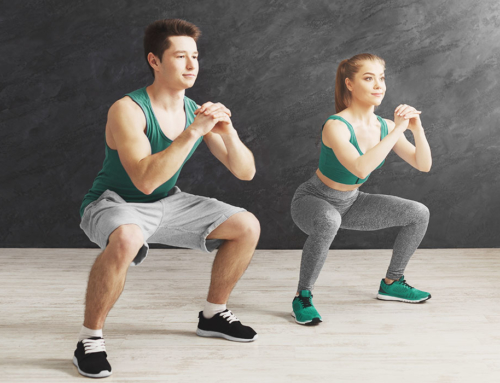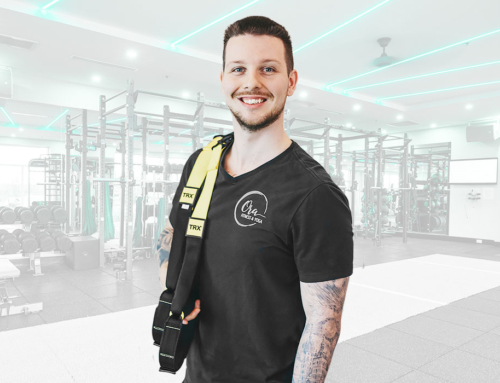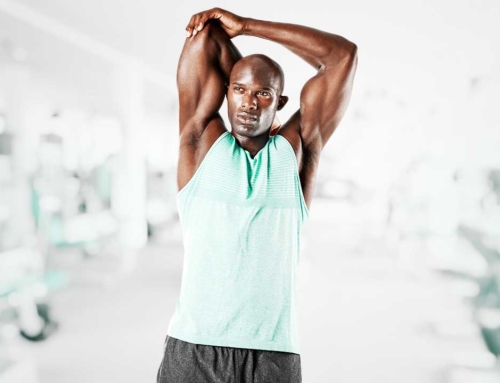Work stressing you out? Is life, in general, the primary cause of your stress? Having trouble staying consistent with your exercise and nutrition plan? If so, you should probably keep reading.
Why do most people tend to get weaker, gain more weight, and get less healthy when they get into their 30’s, 40’s, and 50’s? Chalk it up to increased stress, increased responsibilities, and decreased time and energy. We know we need to eat better. We know we need to take better care of ourselves. But most people have a difficult time staying consistent with their nutrition and exercise plans.
You can reverse the downward spiral of stress, and start building a healthy body you can be proud of, and the good news is that you can do it all in an hour or two per week. I tell my clients all the time that if they commit to just 1 or 2 days per week for the rest of their lives, they will see vast improvements in their quality of life. There are usually two major problems that most people face in their lives when it comes to trying to make fitness and health a priority:
Problem #1: Your life is busier than it’s ever been
Some interesting things start to happen as we exit our 20’s and enter our 30’s, 40’s, and 50’s: We tend to get less sleep and wake up tired and sore. Our sex hormones peak… and then start their slow decline. Our crackling ankles, knees, and wrists remind us that we’re getting older. We tend to snack and overeat more often, especially in the evenings. We do less binge drinking, but more consistent drinking. Polishing off a bottle of wine or drinking a few beers each night becomes an ordinary routine.
Now, don’t get me wrong, it’s not all negative. Lots of positive things start happening too.
If we’re lucky, we get:
- An excellent career that’s challenging and rewarding.
- We make more money than when we were younger.
- We develop long-lasting relationships with people we love.
- We start building and nurturing a family.
- We become smarter and more experienced in life
While everyone’s life experience is different, there are a few things that remain consistent no matter who you are. For most people, getting older usually means increased responsibilities at home, increased stress from work, and less time to take care of themselves.
This situation is how we end up with a gym membership we rarely use, a healthy cookbook we rarely open, and a body we’re not particularly proud to have. Sure, we want to drop some fat and look more muscular and fit, but we just don’t have the time or energy. Someday, we tell ourselves, we’re finally going to get our butt in gear.
The only problem? “Someday” keeps getting postponed.
According to countless research studies, lots of people are so stressed out with work and family obligations, that they don’t feel like they have the time or energy to commit to a nutrition or exercise plan. But what if you didn’t have to dedicate a considerable portion of your life to get in shape?
What most people do when they feel busy and stressed? They let their busy schedule overtake their health, set huge fitness goals they don’t have a miracle of hitting and on top of that, they continue to add body fat and beat themselves up for not making a change.
But here’s what you can do to be successful: Embrace exercise minimalism and identify the most significant gap in your nutrition and work on fixing it.
1. Embracing exercise minimalism!
You don’t have to spend hours in the gym to get in better shape. That’s why I encourage clients to do things outside of the gym that are shorter in duration, like doing home workouts. I also encourage clients to do “mobility” or “movement” workouts that can be only 5 minutes in length. It’s always better to do something than nothing. Our bodies are meant to move, so let’s move them!
So how do you embrace exercise minimalism on your own?
Easy! You can click our Youtube page and go to our “Fitness Fridays” section and go through ALL the workouts. Majority of them are used with minimal equipment to body weight exercises. An easy way to start is the mobility workouts I filmed for my month.
You can check out all of them here:
2. Identify the biggest gap in your nutrition and work on fixing it
We all know that nutrition is important for looking and feeling better. We all know we need to follow some sort of nutrition plan. However, most people don’t know where to start. (Or they start a new diet and try to change everything at once, which usually fails). Instead of trying to change everything about the way you eat right now, which will just add to your stress levels, I encourage clients to pick one thing about the way you eat—the thing you think will make the most significant improvement to your nutrition—and focus on it exclusively for a couple of weeks.
Once you’ve been consistent for 14-21 days, then you can pick another thing to try. The goal is to practice simple, strategic actions that build over time. So how do you know what thing to pick? Easy. Just ask yourself this question:
“What’s the one thing I could do right now to feel better about my nutrition?”
Chances are you have a good idea on what you need to do. But if you can’t think of anything Here’s a short list of what I suggest to clients:
- Drink less beer and alcohol. Instead of drinking two beers every night, have one beer.
- Eat less junk food / fast food. Instead of stopping in for a burger for lunch, go to a grocery store and get a pre-made salad with chicken on it.
- Reduce refined carbohydrates. Instead of ordering fries at dinner, get a salad. Instead of having a breakfast sandwich, order scrambled eggs.
The idea here is to pick the one nutrition practice that will make the most significant impact on your body and health right now.
Problem #2: You know what to do, but you’re just not consistent.
This problem is the motherlode of all problems. Here’s what most people have tried before getting sustainable results: P90X, Insanity, and other workout DVD’s, CrossFit, using a Fitbit, any popular diet, etc. Of course, these aren’t “bad” options. They end up working for some people. But eventually, most of these methods and tools begin to break down and fail over time.
Why is that?
It’s because they’re surface solutions. They help solve a surface-level problem. Don’t have a gym to train at? Now you do. Want to track how many calories you eat? Here’s an app. Want to know how many steps you’re taking? Wear this bracelet thing. The only problem with surface-level solutions? They only work for a little while. They don’t account for the ups and downs of everyday life. They don’t adapt to your life.
- Ideally, you want a program that covers a few bases:
- It’s been tested with lots of people.
- It’s customizable to your lifestyle
- It’s something you actually enjoy doing
- There’s something big and positive to shoot for at the end.
The first three are incredibly important; they’re the cornerstone of a solid exercise and nutrition program. But the fourth one—having something big and positive to shoot for—is often overlooked.
Most programs out there do the opposite: They make you feel guilty and bad for “slacking” or for not being a paragon of health and fitness. But we don’t need any more negativity in our lives, and we’re sure you don’t either. So how do you know if a certain program will help keep you accountable? Here are a few considerations:
Progress Tracking
You need a way to measure your progress and track it on a daily, weekly, and monthly basis. I like to tell clients to journal everything! It’s really powerful.
Flexibility
You need to follow a structured plan, but still, have room to move at your speed when needed. That’s why our classes are great! Our coaches can speed things up or slow things down for you depending on your fitness level.
Reminders
You need a daily reminder to practice whichever nutrition, exercise, or lifestyle habit you’re currently working on. Sticky notes do great! Or just looking at our Monday Motivation posts on social media works too!
Customizable
You need it to be customizable to your skill levels, goals, and how much time you have available. Our class schedule has so many options, so having a tight schedule will always work with our classes running from Monday to Sunday!
Make yourself accountable to a person. Make a buddy at your next class and tell them you’re serious about this health and fitness stuff and need someone to make sure you’re on track. Most likely, they will want to join forces and do the same. If we’re accountable to another person, we’ll actually do the workouts and eat the food we need to look and feel great. And we’ll do it over and over again, even when the going gets tough.
That’s why the most successful people become accountable to another person.
Overall, when we can limit our stresses when it comes to fitness and health and create a support system that is flawless, we can easily be successful in the long term. When we take out the guess work and all the unnecessary stress that comes with it, we can focus on what really matters and finally lose that weight and keep it off long term.









Leave A Comment